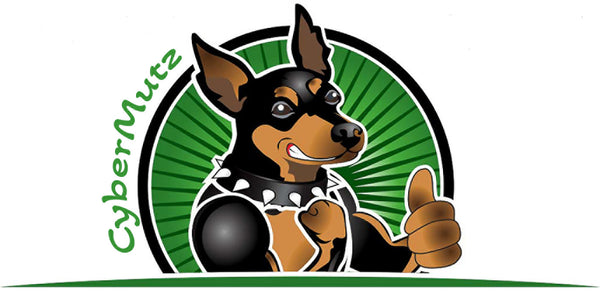
🐶 Top Grooming Tools Every Dog Owner Should Own
Share
🐶 Top Grooming Tools Every Dog Owner Should Own
Whether you’ve got a fluffy floof, a wiry watchdog, or a sleek shorthaired pup, keeping your dog clean and well-groomed isn’t just about good looks—it’s about health, hygiene, and bonding. The right grooming tools make all the difference between a stressful chore and a spa-like experience for your pup.
Here’s a list of essential dog grooming tools every pet parent should have on hand.
✂️ 1.
Slicker Brush
Best for: Removing mats, tangles, and loose fur
A slicker brush is a must-have, especially for long-haired or double-coated breeds. It gently detangles knots and helps reduce shedding while stimulating the skin.
💡 Pro tip: Use short strokes and work from the bottom layers up to avoid pulling.
🧽 2.
Deshedding Tool (like the FURminator)
Best for: Heavy shedders and double-coated breeds
This tool is a lifesaver during shedding season. It reaches deep into the undercoat and removes loose fur before it ends up on your couch.
💡 Pro tip: Use once or twice a week to reduce overall shedding and prevent matting.
✂️ 3.
Grooming Scissors and Thinning Shears
Best for: Trimming sensitive areas and styling
Round-tip scissors are perfect for snipping hair around the eyes, ears, paws, and sanitary areas. Thinning shears help blend uneven patches for a professional-looking finish.
💡 Pro tip: Always keep scissors sharp and clean to prevent tugging or injury.
🛁 4.
Dog-Safe Shampoo and Conditioner
Best for: Skin health and a fresh-smelling coat
Avoid using human shampoo—dogs have different skin pH levels. Look for a gentle, hypoallergenic, or breed-specific formula.
💡 Pro tip: Rinse thoroughly to prevent skin irritation or flaking.
🐾 5.
Nail Clippers or Grinder
Best for: Maintaining healthy paw structure and preventing overgrowth
Long nails can cause joint strain or injuries. Choose between guillotine clippers, scissor-style clippers, or a rotary grinder (like a Dremel) based on your comfort level.
💡 Pro tip: Trim small amounts regularly and avoid the quick (the pink area in the nail).
👂 6.
Ear Cleaning Solution and Cotton Pads
Best for: Preventing ear infections, especially in floppy-eared breeds
Dogs are prone to wax buildup and debris. A gentle, vet-approved solution can help keep ears clean and infection-free.
💡 Pro tip: Never use cotton swabs—stick to pads or gauze and wipe only what you can see.
🧼 7.
Pet Wipes or Dry Shampoo
Best for: Quick clean-ups and in-between baths
Perfect for muddy paws, slobbery jowls, or post-park cleanup. Dry shampoos are great for dogs who hate water or during winter.
💡 Pro tip: Choose alcohol-free, natural wipes to avoid skin irritation.
🧤 8.
Grooming Glove
Best for: Nervous dogs or quick daily upkeep
A grooming glove feels more like petting than brushing and is great for short-haired breeds. It helps remove loose fur and dirt with zero stress.
💡 Pro tip: Use during cuddle time to sneak in a grooming session.
🧠 Bonus: Grooming Caddy or Storage Bag
Keeping all your grooming tools organized in one place saves time and frustration. A waterproof, portable caddy or bag helps you stay prepared for any grooming emergency.
🎯 Final Thoughts
Regular grooming isn’t just about making your dog look good—it’s key to spotting early signs of skin issues, parasites, or injuries. Investing in the right tools makes grooming easier, safer, and way more enjoyable for both you and your furry friend.
